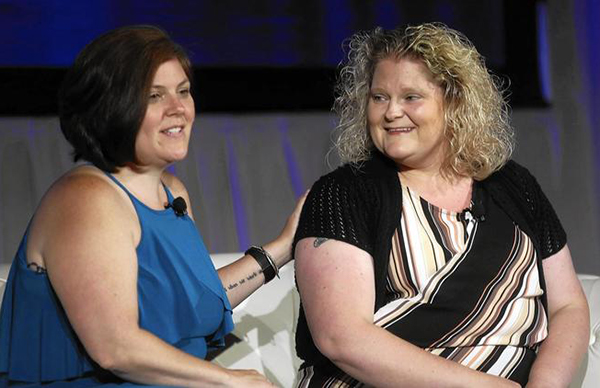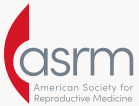Meeting the First IVF Babies
June 27, 2017 by Frank Golden
Saturday, June 17th, I attended the Midwest Reproductive Symposium International’s 2017 Conference held in downtown Chicago. The Midwest Reproductive Symposium international, or MSRi, is a nonprofit organization dedicated to providing quality continuing education for professionals within the reproductive community. My good friend and colleague, Dr. Angie Beltsos, invited me to speak on the patient panel as a member of the gay community and as a parent of two children born via IVF.
There have been several conferences held by MRSi, but this conference was particularly special. At this conference, the world’s first IVF baby, Louise Brown and America’s first IVF baby, Elizabeth Carr met for the very first time. I’m honored to be included in any conference or event specific to the betterment of reproductive medicine; I felt especially honored to attend an event of this magnitude.
In July 1978, newspaper headlines, local and abroad, announced the birth of the world’s first “test-tube baby”. SuperBabe, they called her. Others called her unnatural and a “science experiment”. When I look at Louise Brown, I see a person, an author, a wife, a mother. I definitely do not see a “science experiment”. I don’t see “science experiment” when I look at Elizabeth Carr either. Elizabeth and Louise are two healthy, young women with feelings, thoughts, loved ones, and anything and everything else that other “normal” human beings possess. They are real, functioning people.
Prior to Louise’s birth, IVF was just a notion. It was experimental. There are examples of IVF practices dating back to the late 1800’s. The first subjects were animals; humans came later. Before Louise was born, in the early to mid 1970’s, other IVF pregnancies were reported; unfortunately, they resulted in failure. Louise’s birth was the first IVF success. It proved that the procedure was possible, that it was not a useless attempt at creating life. Louise’s birth validated reproductive medicine and the years of trial and error. Although Louise was a passive participant in her conception, I consider her to be a founder of reproductive medicine. Her contributions to the field are monumental. She is still actively involved in the reproductive community.
Since Louise and Elizabeth’s births, IVF has contributed to the creation of millions of families. It is now a widely practiced, mainstream science. The rapid advancements made in reproductive science are truly awe inspiring. Louise and Elizabeth are only in their thirties. I’m in my thirties. I’m growing up with the first IVF babies; I’m growing up with the industry. It’s insane. We can’t determine what’s next for the field of reproductive medicine, and that’s what intrigues me most about the field- it’s constantly changing.
During the same weekend I stood on stage with Louise and Elizabeth, I celebrated Father’s Day with my husband and my two children. These two life events coincided perfectly. Without these pioneers of reproductive medicine, I would not have my children. Without them, there would be no Father’s Day celebration following the conference. I look at Louise and Elizabeth and see examples of my children and their long-term potential, and it excites me. Elizabeth studied journalism. Louise wrote a book. Both have children of their own. Maybe one day Silas will write for a newspaper, and maybe Sophia will write a book. Or maybe she’ll become a mother one day- one day very, very, very, very far from now.













